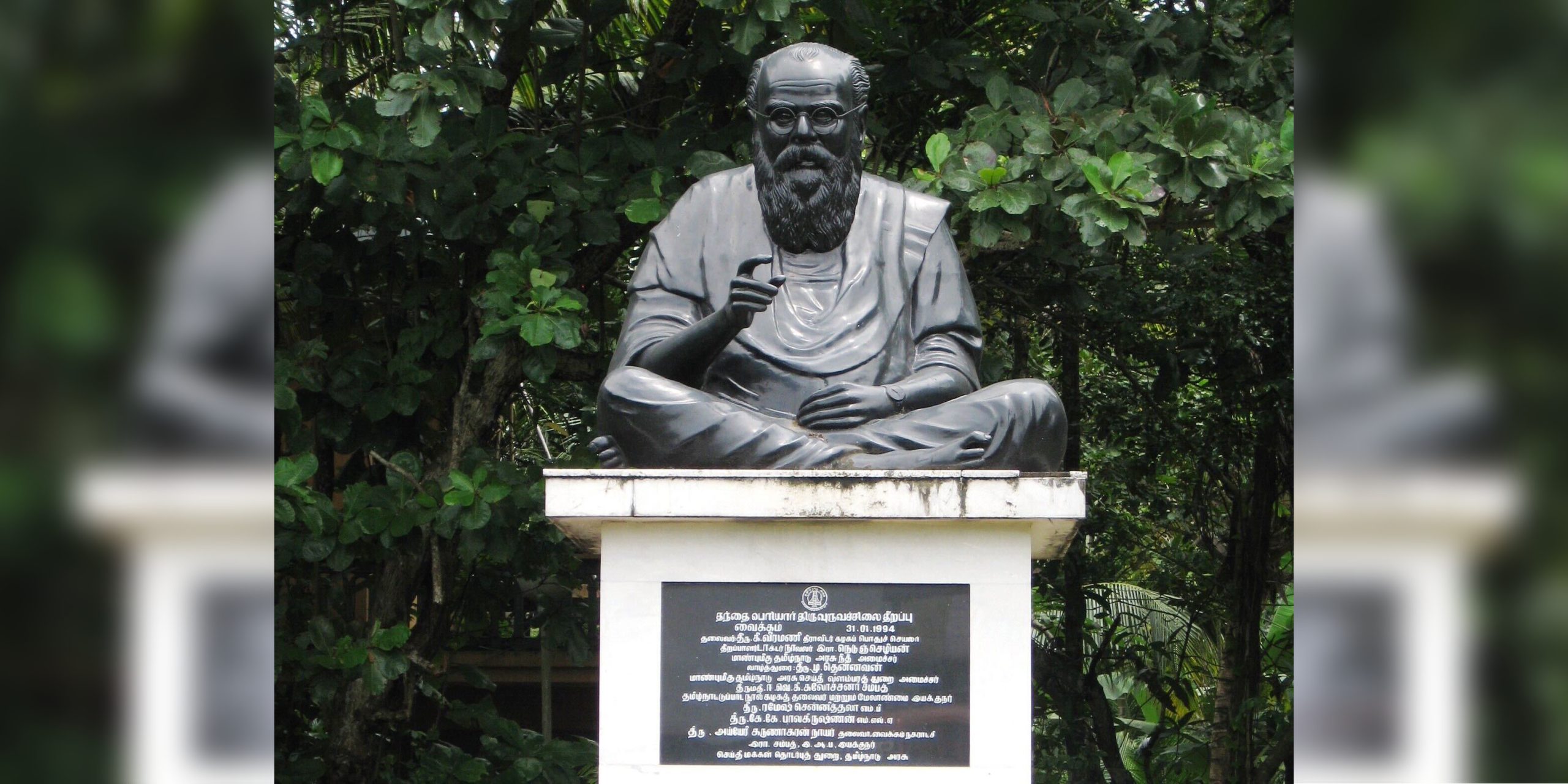Periyarist and Dravidar Viduthalai Kazhagam founder Kolathur Mani said it was Periyarists' right to spread views questioning God's existence.

A Periyar statue with inscriptions. (Supplied)
The Supreme Court on 12 September sought a response from the Dravidar Kazhagam — the social movement founded by Periyar — and the Tamil Nadu government on a petition seeking the removal of anti-God inscriptions on the statues of the social reformer and atheist across the state.
A two-judge bench comprising Justices Sanjay Krishnan Kaul and AS Oka issued the notice while hearing the petition by M Deivanayagam, in which he contended that the inscriptions hurt the belief and sentiments of him and the public at large.
The petitioner challenged the Madras High Court order of 2019, which rejected his PIL to remove atheistic inscriptions on Periyar statues, emphasising the right to propagate views questioning the existence of God.
However, the Supreme Court has now sought a response, which Periyarists and Periyarist outfits say it was not necessary.
Almost all the outfits that endorse the ideology of Periyar in Tamil Nadu have said the Supreme Court step of seeking a response over the inscriptions was unnecessary. The inscriptions on the statues don’t amount to any hate speech, according to the petitioner.
Periyarist and Dravidar Viduthalai Kazhagam founder Kolathur Mani told South First that the apex court should not have sought a response, and that it was their (Periyarists’) right to propagate views questioning the existence of God.
“We, the followers of Periyar, also have the right to disagree with the views on religion and the existence of God under Article 19 of the Indian Constitution,” he said.
Asked if this didn’t mean the state was endorsing atheism, Mani replied there should come another question, adding that if this meant a state was popularising atheism, what would the court call the activities of Narendra Modi, who participates only in Hindu rituals and inaugurates temples?
The inscriptions on the statues are to enlighten the public, and not something that hurts the believers of God, said Mani.
Arulmozhi from the Dravidar Kazhagam told South First that Periyar remained a stumbling block for Sanatanis: people who follow teachings from the Vedas, Upanishads, and other Hindu texts.
She said Periyar fought to eradicate Brahmin supremacists who promulgated Manu-based ideologies practised in the name of God.
“Periyar eradicated such ideologies, which hurt a specific group of people. It still causes them irritation and disturbance, which is why they are approaching the courts to remove the inscriptions but not the statue,” she added.
She also said such cases in the Supreme Court help the ideology of Periyar reach worldwide, but do not bring any harm to it.
The DMK echoed similar sentiments, saying it would always stand by the ideologies of Periyar.
DMK spokesperson V Kannadasan told South First that the party didn’t intrude on the personal liberty of the believers, and maintained that the government’s step in sanctioning more such statutes was the right to free speech.
M Deivanayagam, the petitioner, translated the inscriptions in his petition, which said, “There is no God, no God, no God, Those who preached God Is Fool, Those who spread God is rogue, and Those who pray Gods are barbarians. [sic]”
He said such inscriptions not only insult believers’ religious sentiments but also violate the Constitutional guarantee to practise and propagate one’s religion with dignity.
“It also amounts to public vilification of religion, and strikes at the essence of secularism which demands strict separation of state and religion,” he said.
The petitioner also noted: “By sanctioning such inscriptions, the state has not only alienated but also discriminated against believers of God, and thereby, violated their right to equal treatment, and due to life with dignity under Articles 14 and 21 of the Constitution.”
He added: “Further, the state’s sanction of such inscriptions is inconsistent with the constitutional guarantees of free thought and conscience, and the right to profess and propagate one’s religion under Articles 19, 25, and 26 of the Constitution.”

May 11, 2024

May 11, 2024

May 11, 2024

May 11, 2024

May 11, 2024

May 10, 2024